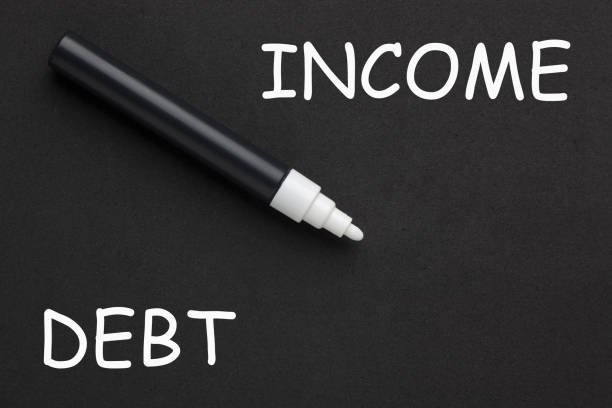Introduction: The Importance of Low-Interest Loans
Low-interest loans are an essential financial tool in today’s era that help people meet their financial needs. These loans often come with lower interest rates and flexible repayment terms, which are beneficial for borrowers. However, there are certain requirements you need to understand to qualify for low-interest loans. In this article, we will explore how you can become eligible for low-interest loans and make the process easy and manageable.
Meaning of Low-Interest Loans

Low-interest loans refer to loans provided at interest rates lower than the market rate. These loans are usually available through government schemes, financial institutions, or non-profit organizations. Their primary goal is to provide borrowers with low-cost financing to improve their financial stability. Low-interest loans are often available for education, home buying, or business expansion. The benefit of these loans is that you have to pay a lower repayment amount, reducing your financial burden.
Eligibility Criteria for Low-Interest Loans
To qualify for low-interest loans, you need to meet certain specific criteria. First, your credit history should be good. Financial institutions prefer borrowers with high credit scores who make timely payments. Second, income stability is also important. Institutions look at your monthly income and financial stability. Third, you need to clearly demonstrate your financial needs so that lenders understand how you will use the loan.
Credit Score and Low-Interest Loans

Your credit score plays a key role in qualifying for low-interest loans. A credit score is an indicator of your financial health, reflecting your past credit behavior. Higher credit scores mean you have made timely payments in the past and your financial risk is lower. If your credit score is low, your chances of getting a low-interest loan may be reduced. Therefore, timely payments and debt management are crucial for improving your credit score.
Role of Income Stability
Income stability is also an important factor in qualifying for low-interest loans. Lenders want to see if your monthly income is consistent. If your income is stable, lenders are confident that you will make timely repayments. If your job or income source is not stable, your loan approval chances may be lower. Therefore, you should keep your income sources stable and maintain financial documents properly.
Debt-to-Income Ratio

The debt-to-income ratio (DTI) is another important factor considered in qualifying for low-interest loans. The DTI ratio is calculated by dividing your total monthly debt payments by your gross monthly income. A lower DTI ratio means that your debt payments are low compared to your income, signaling to lenders that you are capable of repaying the loan. You should manage your DTI ratio to become eligible for low-interest loans.
Importance of Financial Documentation
When applying for low-interest loans, you need to submit your financial documents. These documents verify your income, expenses, and existing debts. Commonly required documents include salary slips, bank statements, tax returns, and proof of assets. These documents give lenders a clear picture of your financial stability and repayment capability. It is important to submit these documents accurately and timely to avoid delays in your loan application process.
Loan Application Process
The process of applying for low-interest loans involves several basic steps. First, you need to understand your requirements and eligibility criteria. Then, prepare the required documents and fill out the application form. After submitting the application, lenders will review your application and documents and inform you about the loan approval. Once approved, you will need to sign the loan agreement, and the funds will be transferred to your account.
Government Schemes and Low-Interest Loans
Government schemes also provide low-interest loans for specific sectors or purposes. These schemes are usually for educational loans, home loans, and small business loans. The benefits of government loans are that their interest rates are generally lower and the repayment terms are flexible. The eligibility criteria for these schemes are specific, and you need to meet them according to the scheme’s guidelines.
Financial Planning and Low-Interest Loans
Effective financial planning is essential to qualify for low-interest loans. You need to clearly define your financial goals and needs and implement financial strategies accordingly. Financial planning includes creating a budget, saving, and investing, which prepares you for financial stability and loan repayment. Financial planning helps you achieve long-term financial health, enhancing your eligibility for low-interest loans.
Loan Repayment Strategies
Repayment strategies for low-interest loans are also important. You should effectively manage your repayment plan to make timely payments and repay the loan efficiently. Repayment strategies include automatic payments, extra payments, and budget adjustments. Automatic payments ensure timely payments, and extra payments can reduce your loan tenure. Budget adjustments help you manage your expenses and allocate funds for loan repayments.
Common Mistakes to Avoid
When applying for low-interest loans, there are common mistakes you should avoid. The first mistake is not submitting accurate and complete financial documents. The second mistake is not properly understanding your loan requirements and failing to research before applying. The third mistake is not managing the repayment plan properly and missing timely payments. By avoiding these mistakes, you can make your loan application and repayment process smooth and successful.
Role of Credit Counseling
Credit counseling can also be helpful in qualifying for low-interest loans. Credit counselors assist you in understanding and improving your financial situation. They provide strategies for budgeting, debt management, and financial planning, which enhance your financial health. Credit counseling can help you better manage financial decisions and improve eligibility for low-interest loans.
Future Trends in Low-Interest Loans
It is also important to consider future trends in low-interest loans. Through technology and financial innovations, the options and availability of low-interest loans are increasing. Digital platforms and fintech solutions are making it easier to access low-interest loans. In the future, personalized loan options and improved financial tools will be more accessible and beneficial for borrowers. You should monitor these trends to find the best loan options and financial solutions.
Conclusion: The Journey to Qualify for Low-Interest Loans
Qualifying for low-interest loans is a detailed process involving financial planning, eligibility criteria, and documentation. You need to improve your financial health, enhance your credit score, and effectively manage repayment strategies. This journey requires patience and careful planning. Low-interest loans can provide financial stability and growth if you meet these criteria and implement effective strategies. By following these insights and tips, you can successfully qualify for low-interest loans and achieve your financial goals.
